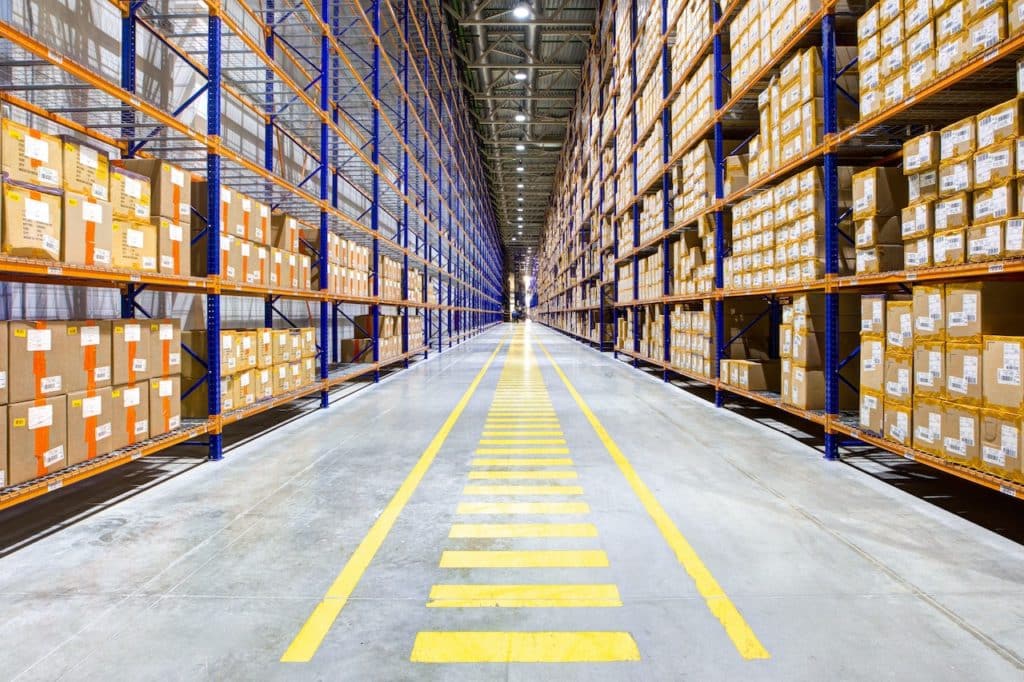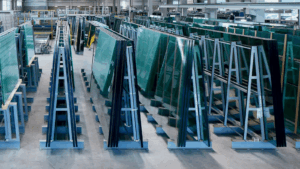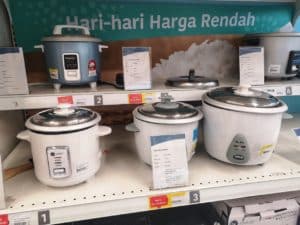For small businesses, managing storage space is often a major challenge. The initial costs of purchasing a warehouse are often too high, and companies are unable to afford such investments. That's why warehouse rental has become a very popular solution for small and medium-sized enterprises (SMEs). In this article, we'll explain why renting a warehouse can be a cost-effective solution for your business, and how you can find the best warehouse to meet your needs.
Why do small businesses need a warehouse?
A warehouse is a dedicated storage space where goods and merchandise are stored prior to distribution or sale. Warehouses can be used to store a wide variety of products, from food and consumer goods to industrial products and raw materials.
Small businesses often need a warehouse to store their goods or products. Companies may need to store raw materials, finished goods or work-in-progress. Warehousing may also be required for seasonal products, overstocks or products in transit. Warehouses often provide equipment such as forklift trucks, pallet trucks and conveyors, to facilitate the loading and unloading of goods.
However, small businesses can often find it difficult to finance the purchase of a warehouse due to the high costs involved in buying such storage space, not to mention maintenance and repair costs. That's why warehouse rental has become a cost-effective solution for small businesses. Warehouse rental allows small businesses to save on initial costs, benefit from the flexibility of adapting their storage space to fluctuations in demand, and take advantage of additional services such as goods security and other logistics services.

The advantages of warehouse rental for small businesses
Warehouse rental offers many advantages for small businesses. Here are some of the most important advantages:
Lower initial investment costs
Renting a warehouse enables companies to reduce initial investment costs, notably by avoiding the costs associated with purchasing storage space, installing the necessary equipment, and maintenance and repair costs. It also ties up less cash, which is vital for SMEs.
Lower storage costs
One of the most obvious advantages of renting a warehouse is the reduction in storage costs. Small businesses can avoid the initial investment of buying a warehouse, and save on maintenance and repair costs. Companies can also benefit from economies of scale by sharing rental costs with other businesses.
Here's a table comparing renting and buying a warehouse, with a numerical example to illustrate the differences:
| Aspects | Rental | Purchase |
|---|---|---|
| Initial costs | Initial costs are relatively low, with only a monthly rent to pay. | Initial costs are high, with a significant initial investment in the purchase of the warehouse, the necessary equipment and so on. |
| Flexibility | Renting offers great flexibility, with the possibility of changing location or warehouse size as required. | Purchasing can limit flexibility, as the company may be limited in its ability to modify or relocate its warehouse. |
| Maintenance costs | Maintenance costs are generally included in the monthly rent. | Maintenance costs are borne by the company owning the warehouse. |
| Security | Rental warehouses often offer security services to protect goods. | The security of the goods is the responsibility of the company owning the warehouse. |
| Example in figures | The monthly rent for a 1000m² warehouse can vary from €1000 to €5000, depending on location and additional services. | Buying a 1000m² warehouse can cost between €500,000 and €1,000,000, depending on the location and equipment required. |
This numerical example clearly shows the significant differences in initial costs between renting and buying a warehouse. For a small company, renting can be a more economical and flexible option for managing storage space without compromising the quality of the production equipment.
Flexibility
Warehouse rental also offers great flexibility for small businesses. Companies can adapt their storage space to fluctuations in demand. In some cases, a new contract may lead to changes in location, which can only be resolved through agility in stock location.
Additional services
Many warehouse rental companies also offer additional services such as goods security, packing, shipping and handling. These services can help small businesses save time and money by outsourcing some of their logistics tasks. The responsibility assumed by using these services also enables a company to focus fully on the tasks most essential to the development of its market. This is an effective solution when operating with a small workforce.
How to find the best warehouse for your business
If you're considering renting a warehouse for your small business, be proactive and consider your specific needs. You can find an agent who will conduct a search for you, but you'll need to tell them exactly what type of warehouse you're looking for. Here are some tips on how to find the best warehouse for your needs:
Assess your storage needs
The first step in finding the best warehouse is to assess your storage needs. How much stock do you need to store? What type of stock is it? How long do you plan to store the stock? By answering these questions, you can determine the size and type of warehouse you need. You also need to consider the type of equipment needed to move your stock or materials, and the specifics of your business.
Find a convenient location
Once you've determined the size and type of warehouse you need, the next objective is to find a convenient location. You need to find a warehouse that is easily accessible for your business and your customers if they visit. You should also consider the transportation and handling costs involved in storing and delivering your goods. Most sought-after warehouses are located around major cities and close to the most convenient national transport routes (freeways, airports and ports).
Check the safety and reliability of the service provider
You need to check the security and reliability of the warehouse service provider. You need to make sure that the warehouse is secure and protected against theft, fire and water damage. You should also check the provider's reliability in terms of on-time delivery, communication and customer service. Beware of offers that are too tempting, because warehouse rental is a business that requires expertise, and you can't entrust your stock to a partner company without having complete confidence in it.
Conclusion
In conclusion, renting a warehouse can be a cost-effective solution for small businesses looking to save on storage costs, offer flexibility and benefit from additional services. By assessing your storage needs, finding a convenient location and checking the security and reliability of the provider, you can find the best warehouse for your business. We hope this article has helped you understand the benefits of renting a warehouse and how it can enable your SME to continue to grow without heavy real estate investment.









